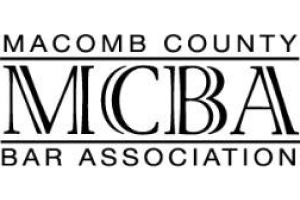- Free Consultation: (586) 264-3756 Tap Here to Call Us
Picking a Fiduciary under Michigan Law
Now that you know the basic information about fiduciaries from our Fiduciaries: A Closer Look blog article, it is time to consider which individuals or entities are appropriate for these positions. If you live in Metro Detroit or West Michigan we can help you with your estate planning, but first you need to determine who will serve as your fiduciaries.
Personal Representative
The term personal representative applies to testate and intestate administration and replaces or includes the former titles of executor and administrator.
The personal representative’s primary job is to wind up the affairs of the decedent. It is a short-term job that entails locating and valuing assets, paying claims, taxes, and expenses; and making distributions to the beneficiaries. The role is quite different from the ongoing management role of a trustee.
It may be difficult to decide whether to name an individual or a corporate fiduciary. The corporate fiduciary typically is experienced in settlement procedures, professional asset management, and investment selection, but its fees may be too expensive for the estate. An individual, often a family member, is perceived as having the advantages of knowing the decedents affairs and the beneficiaries’ characteristics and personalities and being less costly to the estate.
Sometimes a testator prefers to name several persons, such as all of the children. The drawbacks of such an arrangement include complicated decision-making and administrative inconvenience that may lead to delay. Another drawback is the potential for miscommunication, especially when the parties are separated by distance. On the other hand, the arrangement may be the best choice when everyone should be included in settling the estate.
You should also name alternative nominees. There is no assurance that individual nominees will survive or will be willing to serve. Even a bank may decline to act under certain circumstances, or may not be in existence at the time of administration.
Trustee:
A trustee owns and manages property for the benefit of another. While the personal representative must quickly wrap up the decedent’s affairs, the trustee generally has a long-term management and investment function. Because of the differences in these respective job functions, you may have different nominees for each.
Because the function of a trustee is ongoing, you should select a trustee who most likely can serve the anticipated term of the trust. Banks offer the important advantages of permanence and stability. However, individuals may be more appropriate than banks, depending on the circumstances. The reason for creating the trust should influence the choice of trustee. If the purpose of the trust is for concerns that the beneficiary cannot manage their finances, then the trustee should have investment experience. If the purpose of the trust is to look after the daily welfare of a person, then a trustee should be someone who can take time to listen to, and make personal arrangements for, the beneficiary as well as handle investment and tax matters.
Guardian:
A guardian is appointed by the probate court or designated by parental or spousal nomination in a will or other document to exercise powers over a minor or legally incapacitated individual. MCL 700.1104(l). Generally, a guardian “has the powers and responsibilities of a parent.” MCL 700.5215.
Choosing a guardian for a minor or legally incapacitated individual is very important. Many young couples are concerned about a family fight over custody if the children are orphaned, or they fear that someone will be appointed who does not share their philosophies about child rearing.
Selection Considerations:
o Does this individual live in Michigan?
o If you appoint a couple, what happens if they get divorced or one dies?
o Does this individual share your child rearing philosophy?
o Does this individual have the financial ability to raise the children?
o Does this individual have other children?
o Does this individual want to raise your children?
o Does this individual travel frequently, or work long hours?
Conservator:
A conservator exercises full powers over the assets of a protected person. MCL 700.1103(h).
The conservator’s role is to manage and invest assets. Thus, only persons or institutions with skills in those areas should be candidates for nomination. Generally, the guardian will also be nominated as conservator. However, if this individual cannot manage money, then you may want to choose a different conservator.
If you are considering your estate plan, we can help. Serafini, Michalowski, Derkacz & Associates, P.C. is a general practice firm specializing in Estate Planning, Probate, Elder Law, Personal Injury, Disability Benefits, Bankruptcy, Family Law and Criminal Defense. We may be reached at 1 (866) 529-3537; in Metro Detroit at (586) 264-3756; or in West Michigan at (616) 931-3670.
Related Posts: Michigan Veteran Mistreatment Leads to Statewide Shakeup, VA Benefits 2016 Cost of Living Adjustment, Medicad Changes for Spouses at Home, Michigan Vietnam Vets











